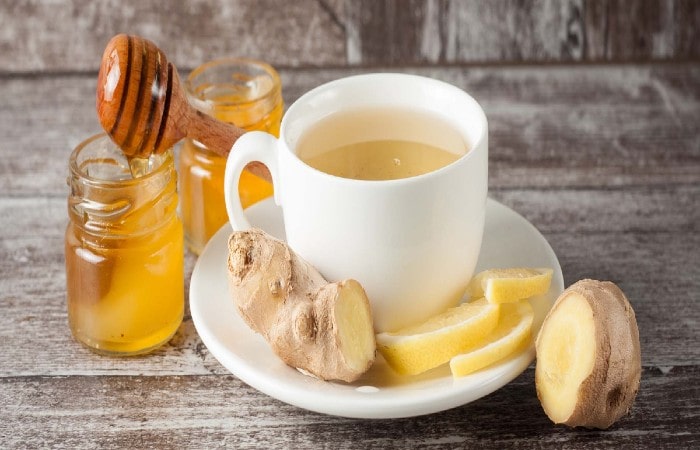Harnessing the Power of Ginger: Exploring its Health Benefits and Dietary Tips for Optimal Well-being
In the world of natural remedies, ginger has emerged as a versatile superstar. Beyond its culinary uses, ginger offers a wide range of health benefits that have been recognized and valued for centuries.

From easing digestive issues to reducing inflammation and supporting immune function, Ginger health benefits and dietary tips has become a popular choice for those seeking to enhance their overall well-being.
In this comprehensive SEO sales article, we will delve into the numerous health benefits of ginger and provide practical dietary tips to incorporate this remarkable spice into your daily routine.
Understanding Ginger’s Health Benefits:
- Digestive Aid: Ginger has long been celebrated for its ability to alleviate digestive discomfort. It stimulates the production of digestive enzymes, helping to break down food and relieve bloating, indigestion, and nausea.
- Anti-Inflammatory Properties: Ginger contains potent anti-inflammatory compounds called gingerols, which have been shown to reduce inflammation and provide relief from conditions like osteoarthritis and rheumatoid arthritis.
- Immune System Booster: The antioxidants present in ginger help strengthen the immune system, protecting the body against infections and illnesses.
- Nausea and Motion Sickness Relief: Ginger has been proven effective in alleviating nausea caused by pregnancy, chemotherapy, or motion sickness. It can be consumed in various forms, including ginger tea, capsules, or candied ginger.
- Pain Management: Studies have demonstrated that ginger can help reduce muscle soreness and menstrual pain, making it a natural alternative to over-the-counter painkillers.
Incorporating Ginger into Your Diet for sound health:

Ginger Tea: Start your day with a refreshing cup of ginger tea by steeping freshly sliced ginger in hot water. Add a squeeze of lemon and a drizzle of honey for added flavor.
Culinary Delights: Add grated or minced ginger to stir-fries, soups, sauces, and marinades to infuse your dishes with a zesty, aromatic flavor.
Smoothies and Juices: Blend ginger with fruits and vegetables to create delicious and nutritious smoothies or incorporate it into freshly squeezed juices for an extra health boost.
Ginger-infused Water: Infuse water with ginger by adding slices of ginger to a jug of water and refrigerating it overnight. Enjoy the refreshing drink throughout the day.
Healthy Snacks: For a tasty and convenient snack, try ginger-infused nuts or homemade ginger cookies. These can be prepared in advance and enjoyed on the go.
Heart disease consider adding ginger
Heart disease continues to be a leading cause of mortality worldwide. While adopting a healthy lifestyle is crucial, certain natural remedies, such as ginger, can complement these efforts by providing additional support for cardiovascular health.
Ginger, renowned for its culinary and medicinal properties, offers a range of benefits that may contribute to a healthier heart. the potential of ginger in promoting heart health and provide practical tips on incorporating this remarkable spice into your daily diet.
Ginger’s Impact on Heart Health:
Cholesterol Management: High levels of LDL (bad) cholesterol and triglycerides are major risk factors for heart disease. Ginger has shown promise in reducing total cholesterol and LDL cholesterol levels, while increasing HDL (good) cholesterol levels, thus supporting a healthy lipid profile.
Blood Pressure Regulation: Elevated blood pressure strains the heart and increases the risk of heart disease. Ginger has been found to have blood pressure-lowering effects, promoting healthy blood flow and reducing the workload on the heart.
Anti-Inflammatory Effects: Chronic inflammation plays a significant role in the development of heart disease. Ginger’s potent anti-inflammatory properties help reduce inflammation markers in the body, potentially mitigating the risk of cardiovascular complications.
Antioxidant Protection: Ginger is rich in antioxidants that combat free radicals and oxidative stress, which contribute to the development of heart disease. By neutralizing these harmful molecules, ginger supports overall heart health.
Improved Blood Circulation: Ginger’s ability to enhance blood circulation and prevent the formation of blood clots may reduce the risk of heart attacks and strokes, safeguarding cardiovascular well-being.
Practical Ways to Incorporate Ginger into Your Diet:
Ginger in Cooking: Infuse your meals with the distinct flavor of ginger by adding it to stir-fries, soups, stews, and salad dressings. Its versatile nature complements a wide range of savory dishes.
Smoothies and Juices: Boost the nutritional value of your smoothies and juices by adding freshly grated ginger. Pair it with fruits and vegetables like spinach, pineapple, or carrot for a refreshing and heart-friendly concoction.
Ginger Supplements: If incorporating fresh ginger into your diet is challenging, consider ginger supplements in capsule or powder form. Ensure you choose high-quality supplements from reputable brands to reap the potential heart benefits of ginger.
Ginger in Baked Goods: Get creative in the kitchen and incorporate ginger into baked goods like cookies, muffins, or bread. Experiment with ginger powder or grated ginger to add a delightful twist to your heart-healthy treats.
Consultation and Precautions:
Consultation: If you have existing heart conditions or are taking medication for cardiovascular health, consult your healthcare professional before incorporating ginger into your routine to ensure it does not interfere with your prescribed treatment.
Moderation: While ginger is generally safe for consumption, moderation is key. Excessive intake of ginger may have adverse effects, especially for individuals with certain health conditions. Maintain a balanced approach and listen to your body’s response.
Allergic Reactions: Some individuals may be allergic to ginger. If you experience any allergic symptoms, such as rash, itching, or difficulty breathing, discontinue its use and seek medical attention immediately.
Choosing Quality Ginger Products:
Below is the Ginger health benefits and dietary tips to follow for a sustainable and healthy lifestyle. which are:
Fresh Ginger: When selecting fresh ginger, look for firm, smooth, and unblemished roots. Avoid any that are soft, wrinkled, or moldy. Store ginger in the refrigerator in a paper towel or an airtight container to keep it fresh for longer.
Ginger Supplements: If incorporating fresh ginger into your diet is challenging, consider ginger supplements available in capsule or powder form. Ensure you choose high-quality supplements from reputable brands.
Ginger Essential Oil: Ginger essential oil can be used topically or in aromatherapy. However, it is important to dilute it properly before applying it to the skin and consult a professional for guidance.
Conclusion on ginger health benefits and dietary tips:
With its remarkable health benefits and versatility, ginger has rightfully earned its place as a superfood. By incorporating ginger into your diet, you can enhance digestion, reduce inflammation, boost your immune system, and manage various health conditions naturally.
Experiment with different recipes and find creative ways to include ginger in your daily routine. Whether in the form of ginger tea, infused water, or culinary delights, ginger can transform your well-being. Embrace the power of ginger and enjoy a healthier, more


































